Lots of places are reporting this morning that burnt toast and roast potatoes can "cause cancer".
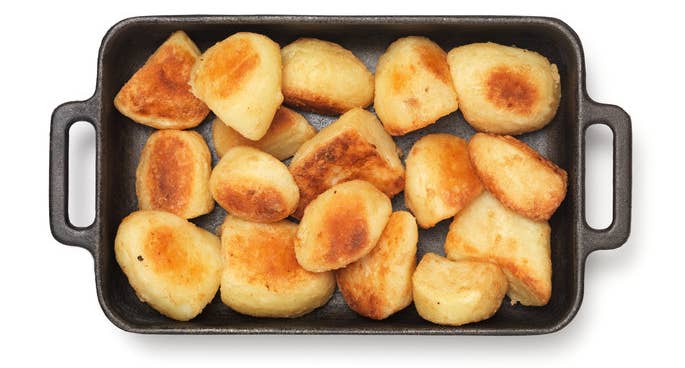
The idea is this: Cooking starchy foods – things like potatoes and bread – at over 120°C causes something called the "Maillard reaction", which is what makes the lovely brown colour and flavour, but also creates chemicals that help the formation of "acrylamides".
High doses of acrylamides have been shown to cause cancer in laboratory animals. They've also been known to cause health problems in humans who work with it in industry. So the Food Standards Agency (FSA) has begun a campaign called "Go for Gold", recommending people cook their roast potatoes or toast to a golden-brown colour, rather than a deeper brown or black, to reduce the amount of acrylamide in their diet. They also recommend that people don't keep their potatoes in the fridge, because that helps create chemicals which, when cooked, form acrylamides.
None of the information is new – the FSA was saying similar things about acrylamides last year.
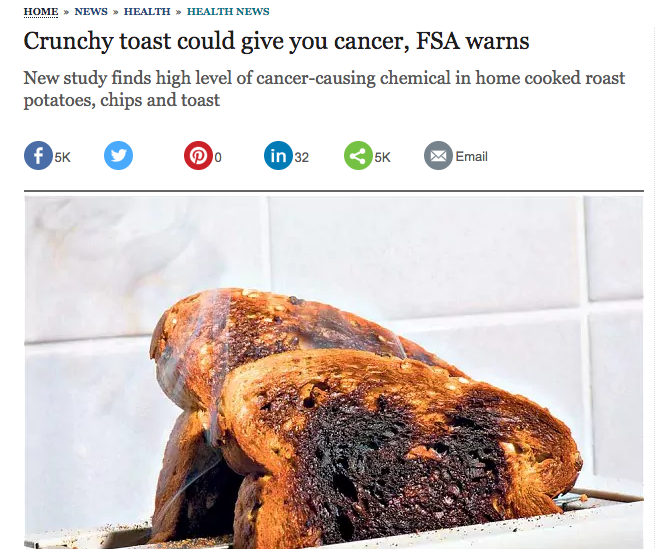
It's just the Go for Gold campaign itself that's new.
Understandably, people are a little concerned about it. There have been a lot of mentions of "cold, dead hands":
They can prise toast from my cold, dead, cancerous hands.
You'll have to prise my well-browned toast from my cold dead hands
@indiaknight They'll have to prise my toast out of my cold dead hands
The trouble is that there's no evidence that acrylamides, in the levels found in food, have any health impact on humans.
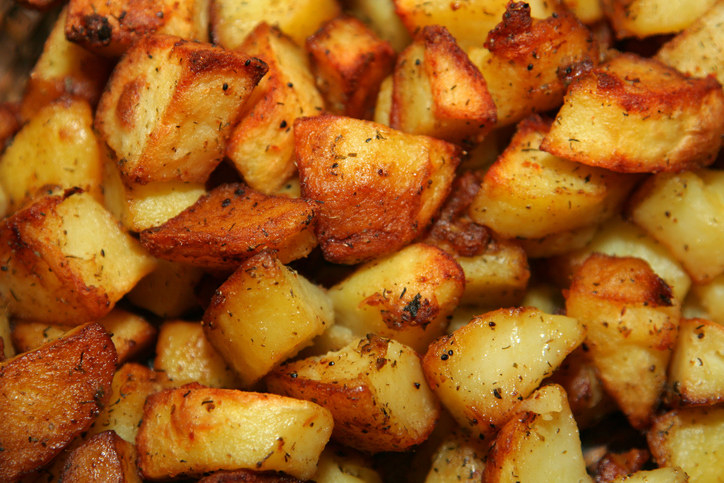
The evidence is all in animals. That's not necessarily an indicator that there is no risk in humans – which can be very hard to show. "You can't go and get a thousand people together, feed half of them acrylamide and the other half of them none, and see who gets more cancer," Don Mottram, a professor of food chemistry at the University of Reading who was one of the first people to discover that cooking could create acrylamides in food, told BuzzFeed News. "That’s a problem with any carcinogen."
Cancer Research UK (CRUK) says "evidence from human studies has shown that, for most cancer types, there is no link between acrylamide and cancer risk", and even food workers who are exposed to much more acrylamide than most of us do not have higher rates of cancer. A major review of the literature by the European Food Safety Authority also found only "limited and inconsistent" evidence of a link.
If there is a risk, it's hard to say what the level is, and the FSA has given no numbers whatsoever, even when directly asked by BuzzFeed News. The World Health Organization classifies it as "probably carcinogenic", but it also says that about bacon and working as a hairdresser – there's no sense of the scale.
If it does cause cancer, it's likely to be a very small risk at the doses you're getting from your potatoes.
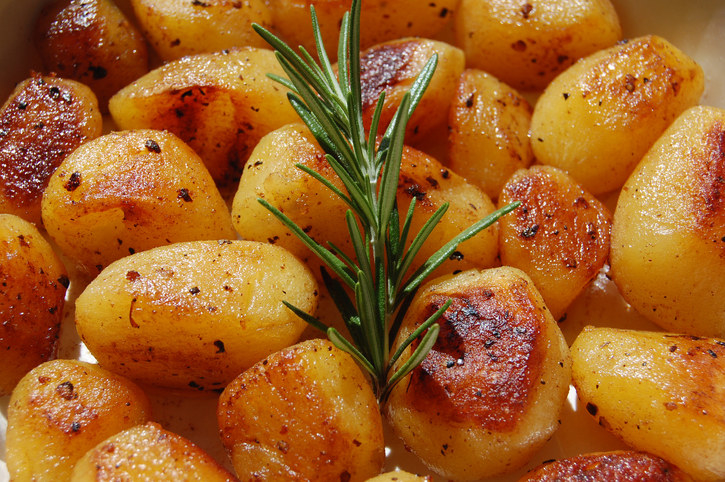
"The magnitude of the risk is completely unknown," Paul Pharoah, a professor of cancer epidemiology at Cambridge University, told BuzzFeed News. "But it is likely to be very small, given the amount of burnt carbohydrate that anybody normally eats in their diet.
"The amount of acrylamide in reasonably well-browned potatoes is trivially small. I don't know anyone who cooks their potatoes until they're black on the outside. And if you like your toast very well done, there will be a bit of blackness, but unless you're having a loaf of bread like that the amount will be tiny."
He said the fact that the studies had so far found no link in humans suggested one of two things: "Either there isn't a link, or there is one but it's so tiny it's undetectable – and therefore unimportant."
For context, CRUK says 1 in 10 cancers could be prevented if people changed their diets. Acrylamides can only possibly be a fraction of that. The FSA's Guy Poppy told a media briefing in response to BuzzFeed News' question that "we don’t know what percentage of food risk is down to acrylamide", but "it’s only a small part of the cancer burden".
The FSA thinks that despite the unclear evidence, it's worth warning the public. But scientists are concerned that it will scare people unnecessarily, or undermine other, more well-supported health messages.
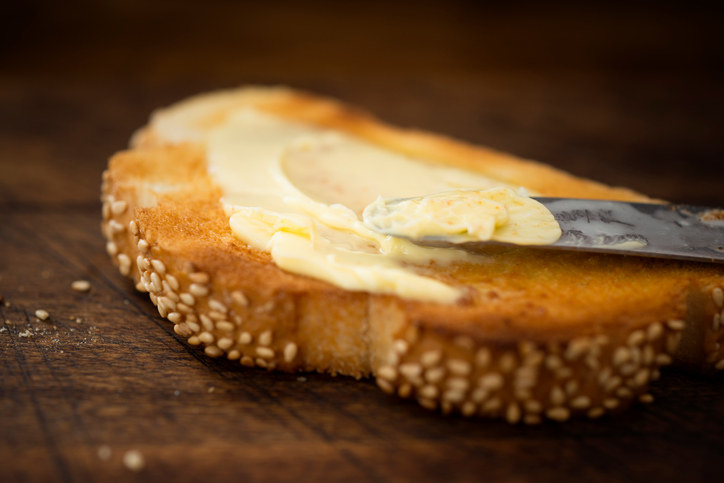
Steve Wearne of the FSA said "all we can do is give the public information", and they can make their own decisions: "They may decide to stick with the same crispy roast potatoes, but have them less often," he said.
But scientists say that doesn't work if the public doesn't know the level of risk. "People may trade off some increased risk in cancer for the pleasure of eating certain foods," Kevin McConway, a professor of medical and biological statistics at the Open University, told BuzzFeed News. "But if you don’t know the level of risk, you can’t make that decision. How dangerous is it? Is it putting-your-finger-in-a-plug-socket dangerous?" Without that context, putting out that information is "close to irresponsible", he said.
The FSA's decision may "dilute much more important messages", such as those about the unambiguous cancer risk of smoking, obesity, or alcohol, said Pharaoh: "It contributes to the overall attitude of 'experts aren't to be trusted' that people have across the board. I don't think these stories help the public at all." He's going to carry on keeping his potatoes in the fridge, he said.
David Spiegelhalter, a professor of public understanding of risk at Cambridge University, wrote in a blog post that even the people who eat the most acrylamides (the people in the top 2.5% of the population by consumption) still have about 1/160th of the amount that leads to a 10% increased risk in mice. He said: "To be honest, I am not convinced it is appropriate to launch a public campaign on this basis."
Mottram disagrees. "I don’t see it as scaremongering," he said. Given the evidence in animal studies, he said, it's probable that there is some risk to humans. "So the FSA are taking the only possible approach, and reminding people to be sensible about how they cook their foods."
To summarise: It's not that toast or potatoes definitely don't increase your risk of cancer. They might. But the scientists BuzzFeed spoke to say that the evidence is weak, and it's probably a very small risk, if it exists at all.
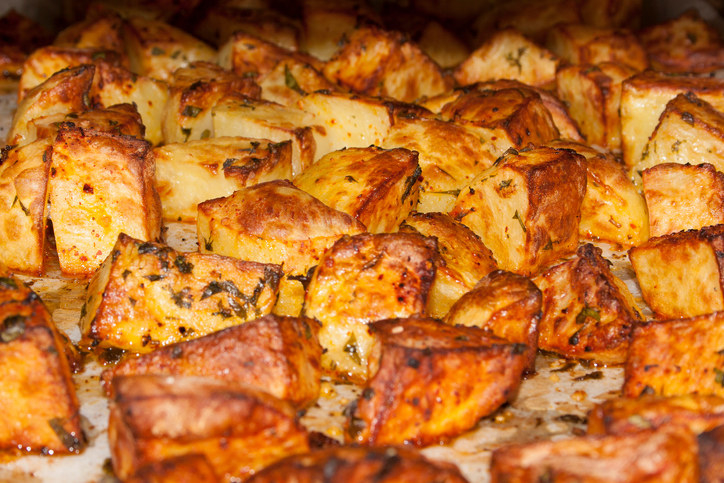
You may still feel that it is worth changing your diet on the basis of this new information. However, you should also remember that other things – such as drinking excessively, smoking, or being obese – increase your risk much more.
CORRECTION
The review of the literature was carried out by the European Food Safety Authority. An earlier version of this piece misnamed the organisation.
